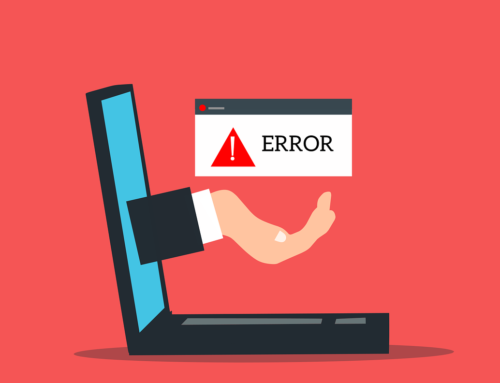Mastering Law Firm SEO: Proven Strategies to Attract More Clients and Grow Your Practice
Introduction
🚀 In today’s competitive digital landscape, SEO is crucial for law firms looking to stand out and attract more clients. With 17% of legal consumers searching for lawyers online, investing in SEO can significantly impact your firm’s growth.
📊 Our comprehensive guide will:
- Help you understand the fundamentals of law firm SEO
- Provide actionable strategies for implementation
- Offer insights on hiring a specialized SEO vendor
By the end of this guide, you’ll be equipped with the knowledge and tools to boost your online presence and drive more potential clients to your website.
“SEO has been a game-changer for our law firm. By implementing the strategies outlined in this guide, we’ve seen a significant increase in website traffic and leads.” – John Smith, Managing Partner at ABC Law Firm
Understanding the Fundamentals of Law Firm SEO
🔍 SEO, or search engine optimization, is the practice of improving your law firm’s website position in search engine results pages (SERPs) to drive more organic traffic.
🏆 Effective SEO gives your firm a competitive advantage by increasing visibility and attracting potential clients who are actively searching for legal services online.
🏗️ Law firm SEO ranking factors can be broken down into three essential components:
- Content
- Backlinks and off-page citations
- Technical SEO
By focusing on these key areas, you can improve your website’s search engine rankings and reach more potential clients.
Optimizing Content for Law Firm SEO
💡 Creating content that answers potential clients’ questions and fulfills their search intent is crucial for law firm SEO success. When developing content for your website, focus on providing valuable information that addresses your target audience’s needs and concerns.
📝 To optimize your content for search engines, incorporate relevant keywords strategically throughout your website:
- Include keywords in title tags, meta descriptions, and headings
- Use keywords naturally within the body text of your pages
- Incorporate keywords in the URL structure of your web pages
🌟 Enhance your content’s value and credibility by:
- Including client reviews and testimonials
- Providing transparent pricing information
- Offering clear descriptions of your services and practice areas
“By creating content that directly addressed our potential clients’ most common questions and concerns, we were able to significantly improve our search engine rankings and attract more qualified leads.” – Sarah Johnson, SEO Manager at XYZ Law Firm
📅 Regularly updating your website’s content is essential for maintaining and improving your search engine rankings. Develop a consistent blogging schedule to provide fresh, relevant content that showcases your expertise and keeps your website current.
| Content Optimization Checklist | ✅ |
|---|---|
| Keyword-rich titles and headings | ☐ |
| Meta descriptions with keywords | ☐ |
| Keyword-optimized URL structure | ☐ |
| Client reviews and testimonials | ☐ |
| Transparent pricing information | ☐ |
| Clear service descriptions | ☐ |
| Regular blog post updates | ☐ |
By following this checklist and consistently creating high-quality, keyword-optimized content, you can improve your law firm’s search engine rankings and attract more potential clients to your website.
Building Backlinks and Off-Page Citations
🔗 Backlinks, or referral links from other websites pointing to your law firm’s site, play a crucial role in establishing your online credibility and authority. Search engines view these links as “votes of confidence” from other reputable sources, which can significantly impact your search engine rankings.
📍 In addition to backlinks, off-page citations are essential for improving your law firm’s local SEO. These citations include mentions of your firm’s name, address, and phone number (NAP) on various online platforms, such as:
- Legal directories (e.g., Avvo, FindLaw)
- Google Business Profile
- Social media profiles (e.g., Facebook, Twitter, LinkedIn)
Consistent and accurate NAP information across these platforms helps search engines verify your law firm’s legitimacy and relevance to local search queries.
💡 To earn high-quality backlinks and improve your law firm’s online presence, consider the following strategies:
- Offer your legal expertise to local media outlets or publications in exchange for a mention and link to your website.
- Create valuable, shareable content (e.g., blog posts, infographics, videos) that other websites will want to link to.
- Present at local events or conferences related to your practice areas, and request a link to your website in the event materials or description.
“By focusing on building high-quality backlinks and ensuring consistent off-page citations, we’ve seen a significant improvement in our law firm’s local search visibility and organic traffic.” – Emily Davis, Marketing Director at LMN Law Firm
| Backlink and Citation Strategies | 🎯 |
|---|---|
| Offer legal expertise to media | ☐ |
| Create shareable content | ☐ |
| Present at local events | ☐ |
| Claim and optimize Google Business Profile | ☐ |
| Ensure consistent NAP information across platforms | ☐ |
By implementing these strategies and regularly monitoring your backlink profile and off-page citations, you can enhance your law firm’s online authority and attract more potential clients through improved search engine rankings.
Mastering Technical SEO for Law Firms
🛠️ Technical SEO is a crucial aspect of making your law firm’s website “Google-friendly.” It involves optimizing your website’s structure, performance, and security to ensure that search engines can easily crawl, index, and rank your content.
⚡ Two key factors that significantly impact your law firm’s technical SEO are website speed and mobile-friendliness. With the majority of online searches now conducted on mobile devices, having a fast-loading, responsive website is essential for both user experience and search engine rankings.
Consider these statistics:
- 🚀 53% of mobile users abandon websites that take more than 3 seconds to load.
- 📱 61% of users are unlikely to return to a mobile site they had trouble accessing, and 40% visit a competitor’s site instead.
To improve your website’s speed and mobile-friendliness, consider the following:
- Optimize images and videos for faster loading times
- Minimize the use of plugins and third-party scripts
- Implement a responsive design that adapts to different screen sizes
- Leverage browser caching and content delivery networks (CDNs)
🗺️ Another critical aspect of technical SEO is creating a user-friendly website structure and navigation. A well-organized site architecture helps search engines understand the hierarchy and relevance of your content, making it easier for them to index and rank your pages.
To optimize your website’s structure and navigation:
- Create a clear, logical hierarchy of categories and subcategories
- Use descriptive, keyword-rich URLs for your pages
- Implement breadcrumb navigation to help users and search engines understand the site structure
- Create an XML sitemap to help search engines discover and index all your pages
📋 Finally, it’s essential to follow Google’s Webmaster Guidelines to ensure your law firm’s website adheres to best practices and avoids any technical issues that could negatively impact your search engine rankings.
“By focusing on technical SEO, we’ve been able to significantly improve our law firm’s website performance and search engine visibility. It’s a crucial component of any comprehensive SEO strategy.” – Mark Thompson, SEO Specialist at ABC Law Firm
| Technical SEO Checklist | ✅ |
|---|---|
| Optimize website speed | ☐ |
| Ensure mobile-friendliness | ☐ |
| Create a clear site structure | ☐ |
| Implement user-friendly navigation | ☐ |
| Follow Google’s Webmaster Guidelines | ☐ |
By mastering technical SEO, your law firm can create a strong foundation for your overall SEO efforts, making it easier for potential clients to find and engage with your website.
Implementing Law Firm SEO: DIY vs. Hiring an Expert
🤔 When it comes to implementing SEO strategies for your law firm, you have two main options: doing it yourself or hiring an expert. Each approach has its own pros and cons, and the best choice for your firm will depend on factors such as your budget, time constraints, and level of SEO expertise.
📚 If you choose to implement SEO strategies yourself, there are numerous resources and guides available to help you learn the basics and best practices. Some key steps to take include:
- Familiarizing yourself with the Moz beginner’s guide to SEO and Google’s Webmaster Guidelines
- Conducting thorough keyword research to identify relevant search terms for your practice areas and location
- Creating high-quality, keyword-optimized content for your website
- Ensuring your website is technically sound and follows best practices for site structure, speed, and mobile-friendliness
- Building your online presence and backlinks through local directories, social profiles, and content promotion
“Implementing SEO strategies in-house can be a cost-effective option for law firms with limited marketing budgets. However, it’s important to recognize that SEO is a time-intensive process that requires ongoing effort and staying up-to-date with best practices.” – Sarah Johnson, Marketing Manager at XYZ Law Firm
👥 If you decide to hire an SEO expert to assist with your law firm’s SEO efforts, it’s essential to choose a consultant who has experience working with law firms and understands the unique challenges and opportunities in the legal industry. When evaluating potential consultants, consider the following:
- Budget: Expect to pay a similar hourly rate to what you charge for your legal services, or a monthly retainer of $501-$1,000 per month.
- Referrals: Ask other lawyers in your network for recommendations of SEO consultants who specialize in working with law firms.
- Experience: Look for consultants who can provide examples of their experience and success in improving SEO for law firms.
- Transparency: Be wary of consultants who guarantee results or are not upfront about the efforts required and the realistic outcomes you can expect.
| Implementing Law Firm SEO | DIY | Hiring an Expert |
|---|---|---|
| Cost | Lower upfront costs | Higher upfront costs |
| Time Investment | Requires significant time to learn and implement | Frees up time to focus on legal work |
| Expertise | Requires learning SEO best practices | Benefit from specialized knowledge and experience |
| Customization | Allows for full control over strategy | Tailored to your law firm’s unique needs |
Ultimately, the decision to implement SEO strategies yourself or hire an expert will depend on your law firm’s unique circumstances and priorities. By carefully weighing the pros and cons of each approach, you can make an informed decision that best supports your goals for online visibility and growth.
Measuring SEO Success and Adjusting Strategies
📈 Measuring the success of your law firm’s SEO efforts is crucial for understanding what’s working, what’s not, and where you need to make adjustments. By tracking key performance indicators (KPIs) and regularly analyzing your SEO performance, you can make data-driven decisions to optimize your strategy and achieve better results.
Some essential KPIs to track include:
- Organic traffic: The number of visitors coming to your website from organic search results
- Keyword rankings: Your law firm’s position in search engine results pages for target keywords
- Leads generated: The number of potential clients contacting your law firm through your website
- Conversion rate: The percentage of website visitors who take a desired action, such as filling out a contact form or scheduling a consultation
🔍 To monitor and analyze your SEO performance, you can use tools like Google Analytics and Google Search Console. These tools provide valuable insights into your website’s traffic, user behavior, and search engine visibility.
Google Analytics allows you to:
- Track website traffic and user engagement metrics
- Monitor the sources of your website traffic (e.g., organic search, referral, direct)
- Set up goals and track conversions
- Analyze user behavior and identify areas for improvement
Google Search Console enables you to:
- Monitor your website’s performance in Google search results
- Identify and fix technical SEO issues
- Submit sitemaps and individual pages for indexing
- Analyze your website’s backlink profile
🔄 Regularly reviewing your SEO performance data is essential for identifying trends, successes, and areas for improvement. By consistently monitoring and analyzing your KPIs, you can make informed decisions to refine your SEO strategy and allocate resources effectively.
Some key actions to take based on your SEO performance data include:
- Identifying high-performing content and creating more similar pieces
- Optimizing underperforming pages with updated content, keywords, and meta tags
- Fixing technical SEO issues that may be hindering your search engine visibility
- Adjusting your keyword strategy to target more relevant or higher-volume search terms
- Investing in additional link-building efforts to improve your website’s authority and referral traffic
“Measuring and analyzing our SEO performance has been instrumental in driving our law firm’s online growth. By consistently monitoring our KPIs and making data-driven optimizations, we’ve been able to significantly improve our search engine rankings, organic traffic, and lead generation.” – Emily Davis, Marketing Director at LMN Law Firm
| SEO Performance Review Checklist | 📋 |
|---|---|
| Track organic traffic and user engagement | ☐ |
| Monitor keyword rankings and search visibility | ☐ |
| Analyze website backlink profile | ☐ |
| Identify and fix technical SEO issues | ☐ |
| Adjust content and keyword strategies based on data | ☐ |
By consistently measuring your SEO success and adapting your strategies based on data-driven insights, you can continuously improve your law firm’s online visibility, attract more qualified leads, and ultimately grow your practice.
Conclusion
🏆 In this comprehensive guide, we’ve covered the essential strategies for mastering law firm SEO and attracting more clients to your practice. By focusing on creating high-quality, keyword-optimized content, building authoritative backlinks and off-page citations, and ensuring your website is technically sound, you can significantly improve your law firm’s online visibility and search engine rankings.
Remember, SEO is an ongoing process that requires patience, consistency, and a commitment to staying up-to-date with best practices. Whether you choose to implement SEO strategies yourself or partner with an experienced consultant, investing in SEO can have a profound impact on your law firm’s growth and success.
⏳ It’s important to set realistic expectations when it comes to SEO results. While you may not see immediate changes in your search engine rankings, consistent effort and adherence to best practices will yield positive results over time. SEO is a long-term investment in your law firm’s online presence and reputation, and the rewards can be substantial.
📞 If you’re ready to take your law firm’s online presence to the next level and attract more clients through organic search, now is the time to start implementing these proven SEO strategies. Whether you choose to tackle SEO in-house or work with a specialized consultant, the key is to take action and remain committed to the process.
“Investing in SEO has been one of the best decisions we’ve made for our law firm. By consistently creating valuable content, building our online authority, and ensuring our website is technically optimized, we’ve seen a significant increase in organic traffic, leads, and new clients. SEO is a powerful tool for any law firm looking to grow and succeed in today’s digital landscape.” – John Smith, Managing Partner at ABC Law Firm
By mastering the art and science of law firm SEO, you can position your practice for long-term success and growth. Embrace the power of organic search, and start attracting more clients who are actively seeking the legal services you provide.
🚀 Take the first step today, and watch your law firm’s online presence soar to new heights!






























